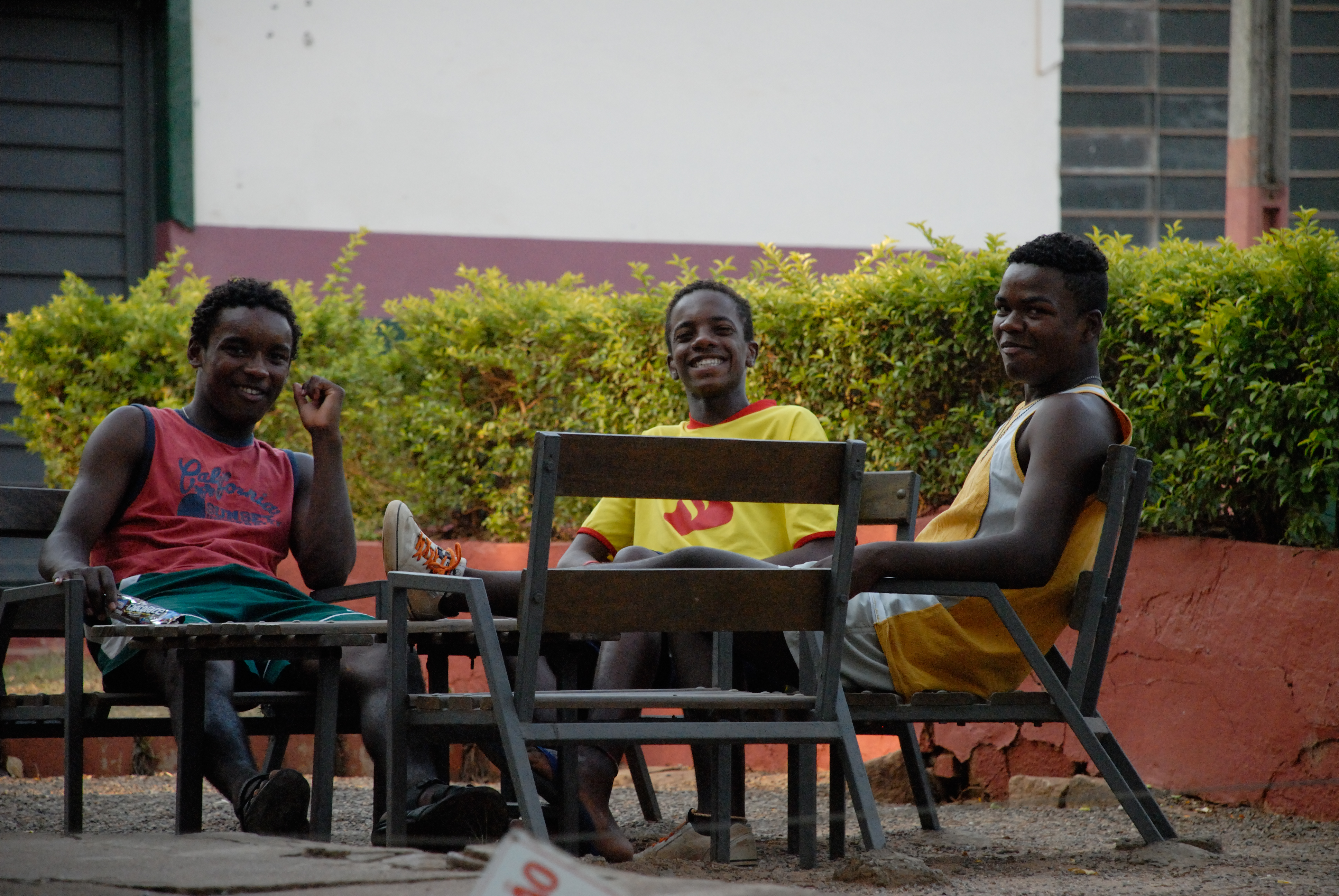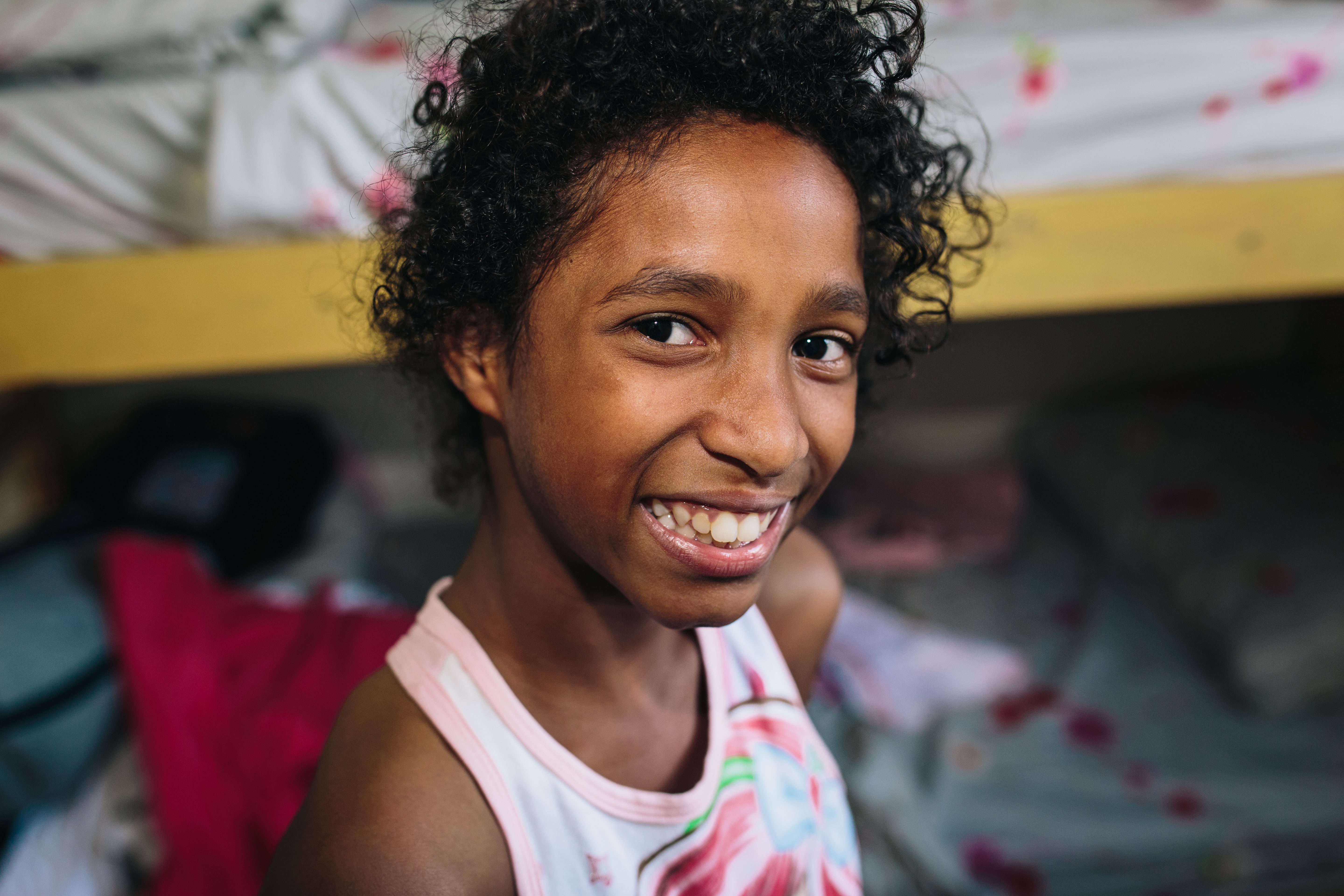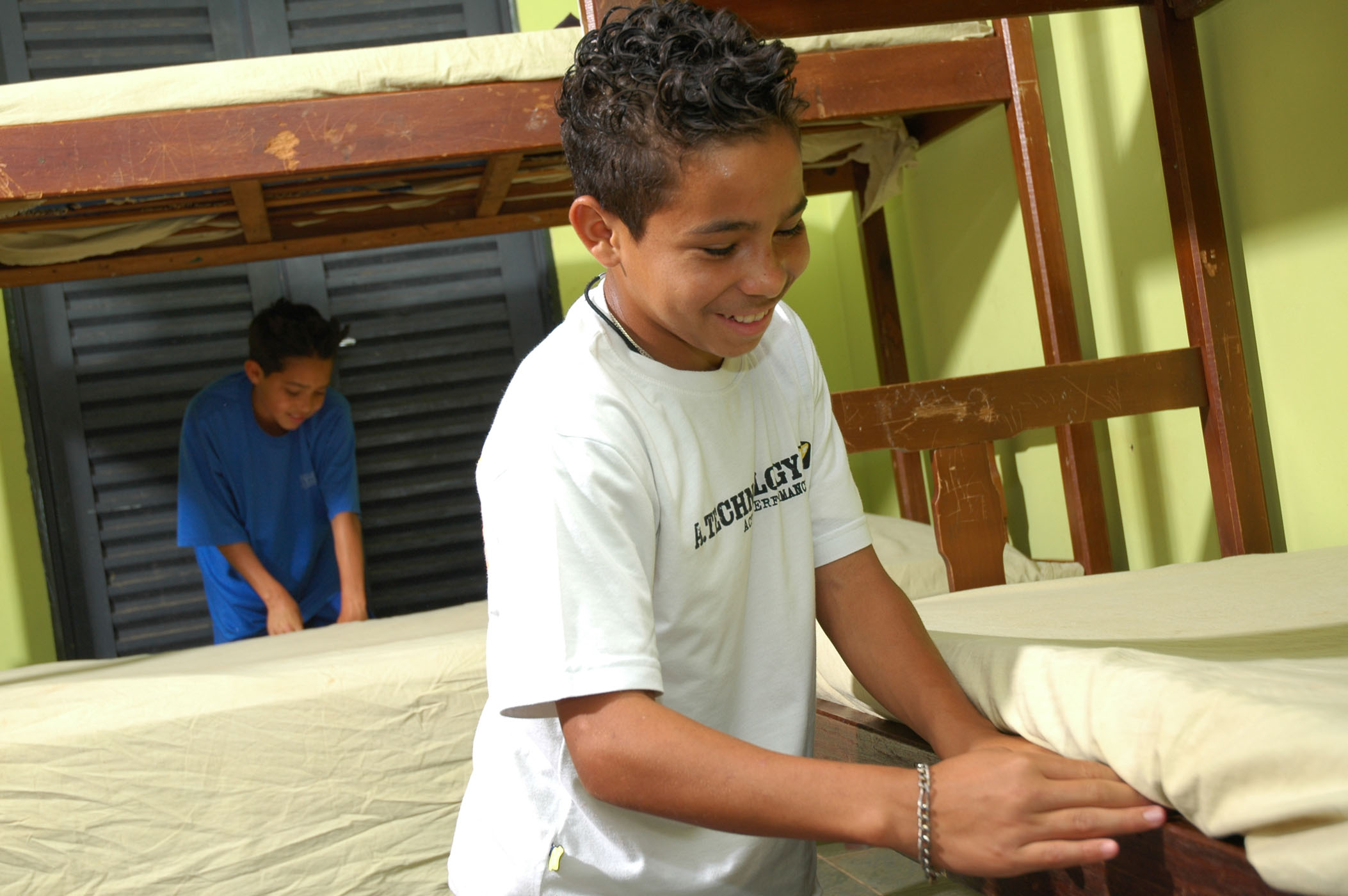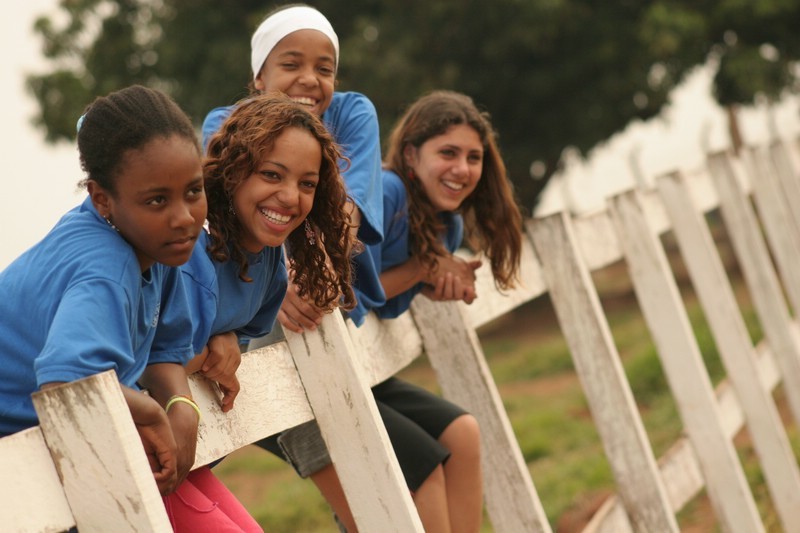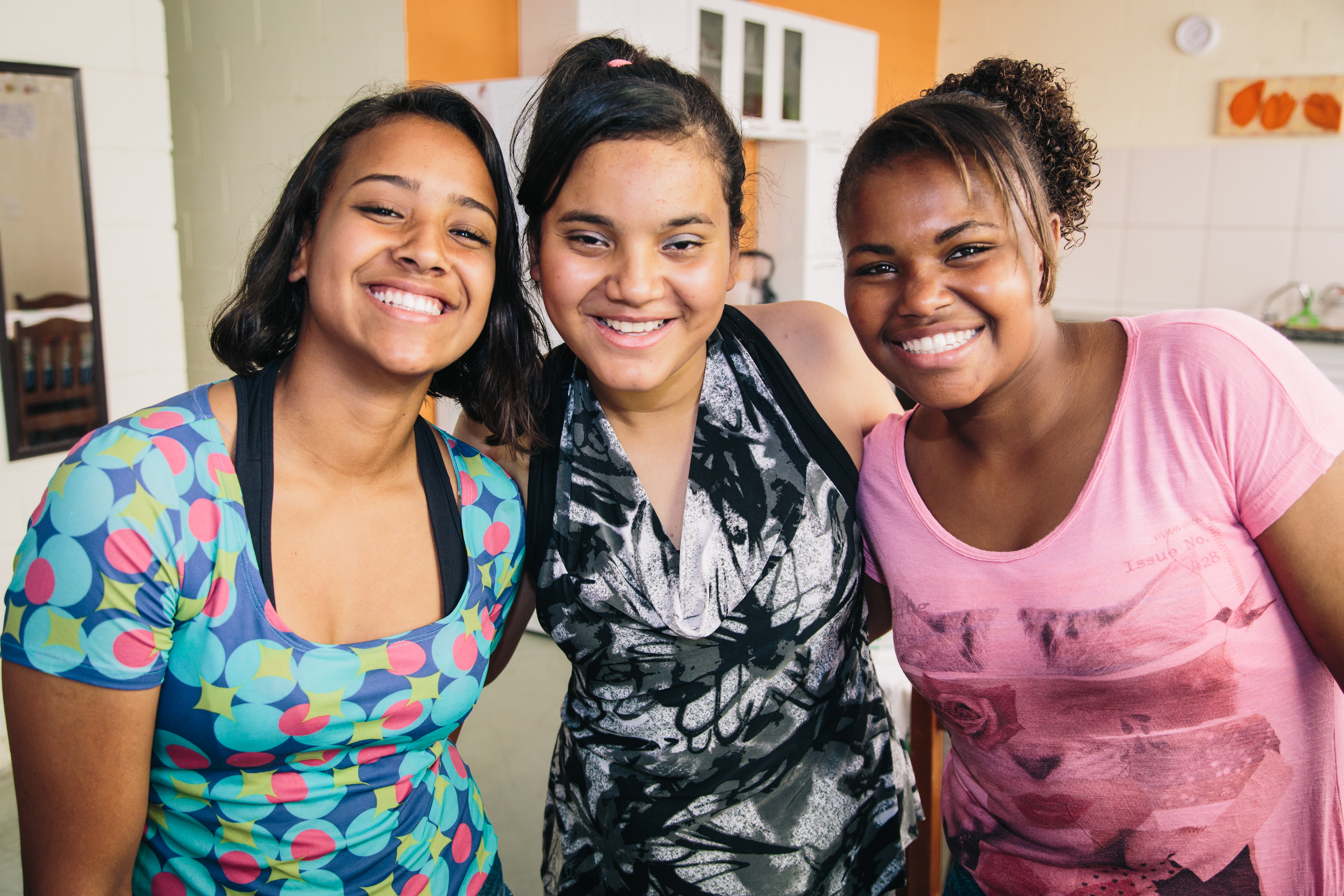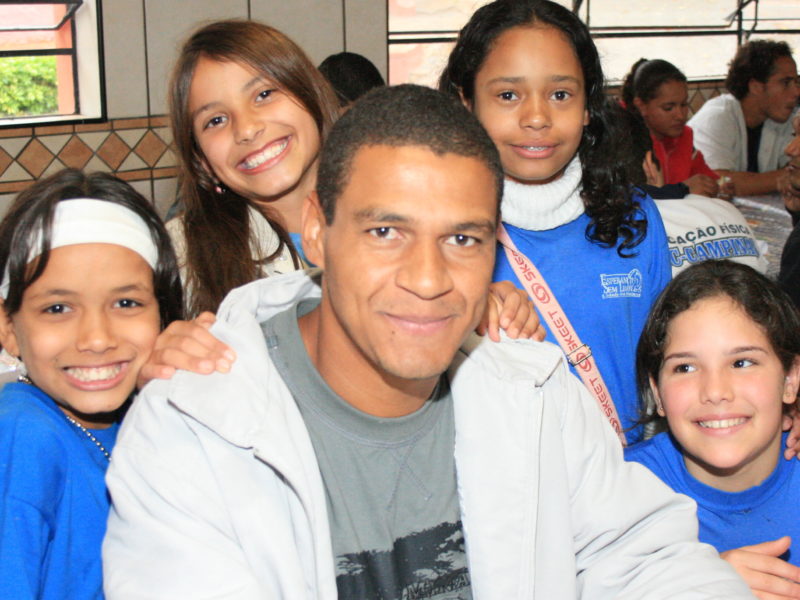
Our residential care programs and community-based homes have very mature and professional house parents who provide stability to our children when they arrive. Each of our ten homes accommodates an average of 9 children. When kids arrive at Hope Unlimited in Campinas, all of them live at the City of Youth ranch where our vocational training courses are; they have a pool, sports facilities, playground, school, and professionals that have offices on the ranch to be near and take care of them. Our main goal is to send the children back to their families, but this is not always possible according to our social workers because of the structure of their families. In our second facility at Hope Mountain in Vitória, we currently house approximately 30 kids in a residential program–all of whom are under death threat.
In Campinas, those children who have no chance of going back to their families are sent to our community-based homes. These are regular houses where they are cared for by a married couple of social parents in a more urban area. That way they have a greater contact with society. In both our residential care programs and community-based homes, kids eat meals and play together and have their own closets and beds. They resist to this family setting when they arrive, but then begin to thrive like Vitor.
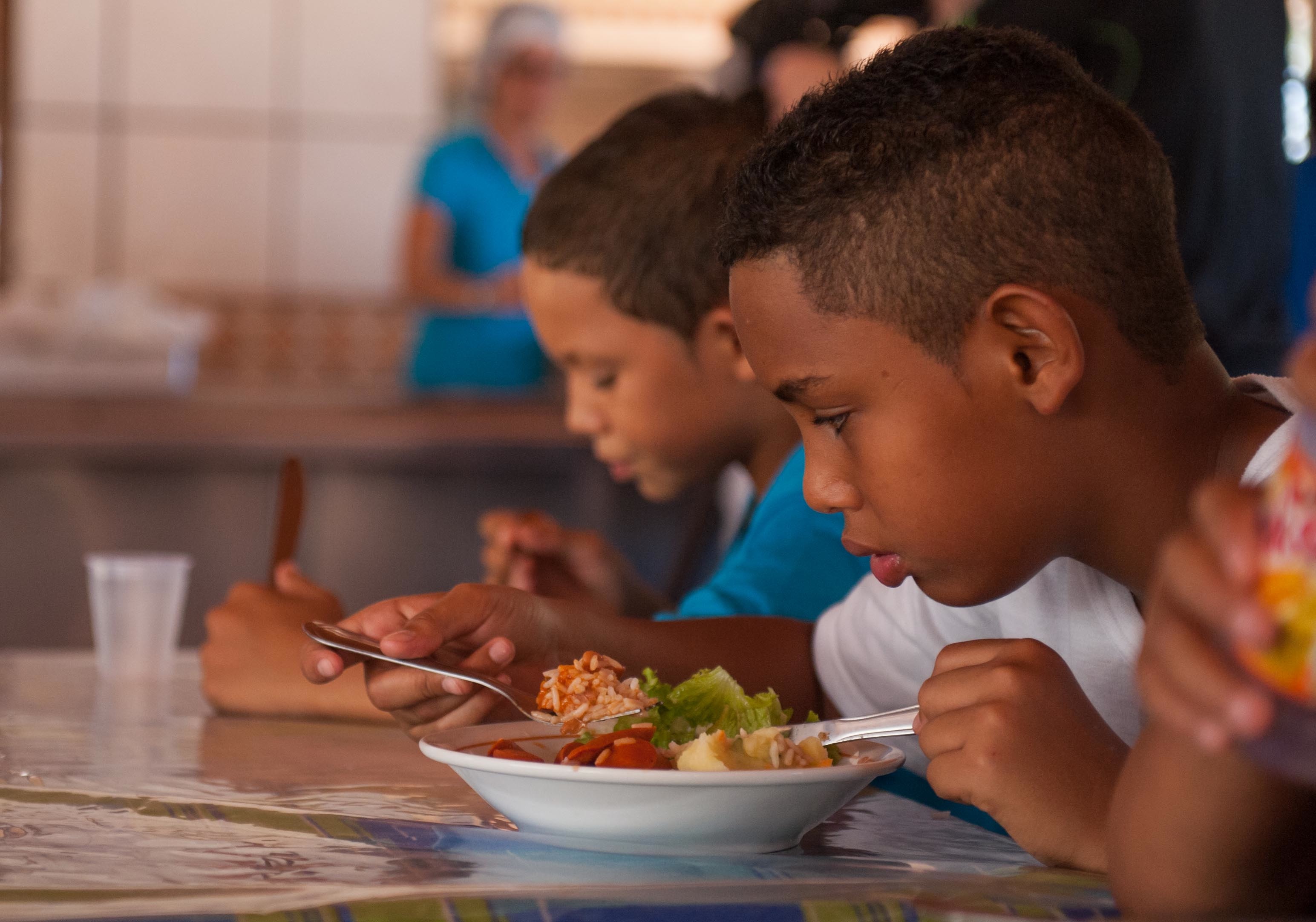
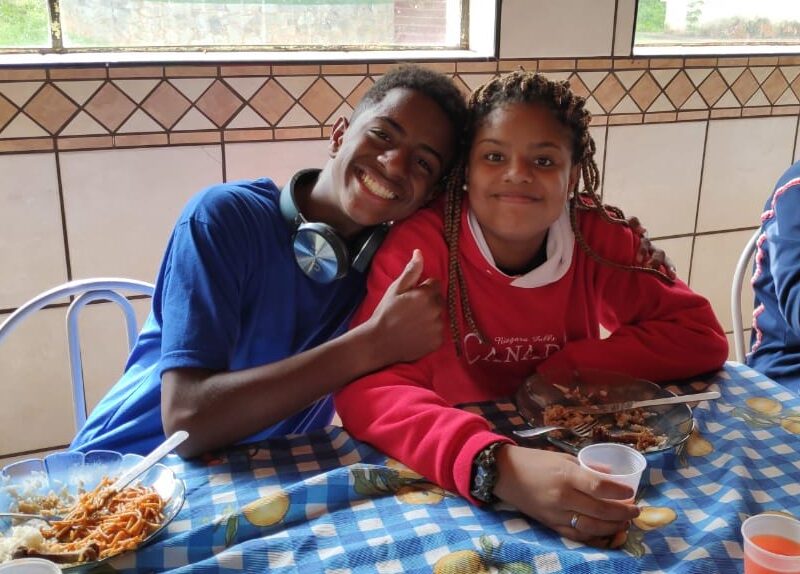
When Vitor first came to the City of Youth, he was hyperactive and disobedient because of the lack of boundaries before arriving at Hope Unlimited. But then, after being around his house parents and other kids in his house, he began to calm down like the others. He has become more obedient because of the positive peer culture from the other children, and now even his grades in school have dramatically improved.
Residential Care
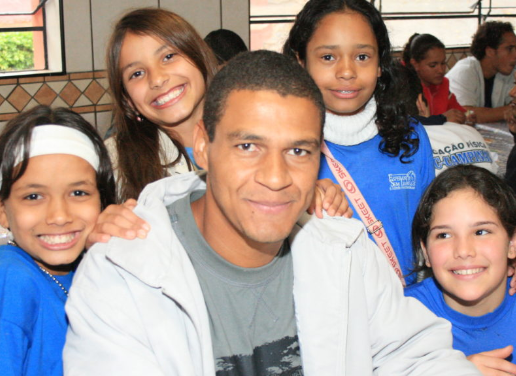
In Campinas, those children who have no chance of going back to their families are sent to our community-based homes. These are regular houses where they are cared for by a married couple of social parents in a more urban area. That way they have a greater contact with society. In both our residential care programs and community-based homes, kids eat meals and play together and have their own closets and beds. They resist to this family setting when they arrive, but then begin to thrive like Vitor.

Our residential care programs and community-based homes have very mature and professional house parents who provide stability to our children when they arrive. Each of our ten homes accommodates an average of 9 children. When kids arrive at Hope Unlimited in Campinas, all of them live at the City of Youth ranch where our vocational training courses are; they have a pool, sports facilities, playground, school, and professionals that have offices on the ranch to be near and take care of them. Our main goal is to send the children back to their families, but this is not always possible according to our social workers because of the structure of their families. In our second facility at Hope Mountain in Vitória, we currently house approximately 30 kids in a residential program–all of whom are under death threat.

When Vitor first came to the City of Youth, he was hyperactive and disobedient because of the lack of boundaries before arriving at Hope Unlimited. But then, after being around his house parents and other kids in his house, he began to calm down like the others. He has become more obedient because of the positive peer culture from the other children, and now even his grades in school have dramatically improved.
Give Hope
You can provide a home, a family, and a future for a child of the streets.
Here are some practical examples:
- $25 – new student welcome kit
- $45 – transportation for one vocational student
- $75 – birthday celebration for three students
- $100 – course supplies for an entire vocational class
Change a life today, and the impact will last for generations.


